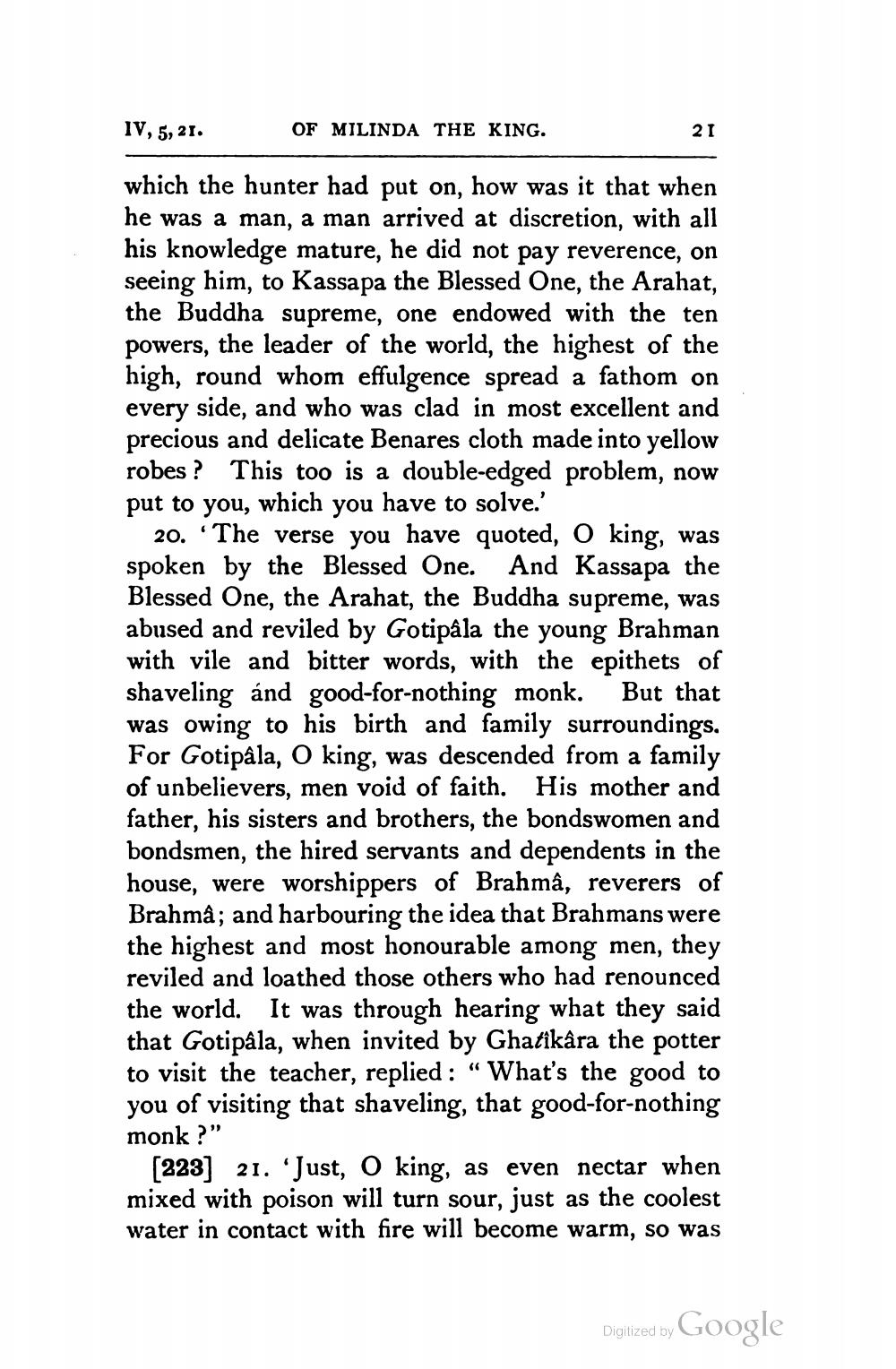________________
IV, 5, 21.
OF MILINDA THE KING.
21
which the hunter had put on, how was it that when he was a man, a man arrived at discretion, with all his knowledge mature, he did not pay reverence, on seeing him, to Kassapa the Blessed One, the Arahat, the Buddha supreme, one endowed with the ten powers, the leader of the world, the highest of the high, round whom effulgence spread a fathom on every side, and who was clad in most excellent and precious and delicate Benares cloth made into yellow robes ? This too is a double-edged problem, now put to you, which you have to solve.'
20. “The verse you have quoted, O king, was spoken by the Blessed One. And Kassapa the Blessed One, the Arahat, the Buddha supreme, was abused and reviled by Gotipâla the young Brahman with vile and bitter words, with the epithets of shaveling and good-for-nothing monk. But that was owing to his birth and family surroundings. For Gotipâla, O king, was descended from a family of unbelievers, men void of faith. His mother and father, his sisters and brothers, the bondswomen and bondsmen, the hired servants and dependents in the house, were worshippers of Brahmâ, reverers of Brahmâ; and harbouring the idea that Brahmans were the highest and most honourable among men, they reviled and loathed those others who had renounced the world. It was through hearing what they said that Gotipala, when invited by Ghatikâra the potter to visit the teacher, replied: "What's the good to you of visiting that shaveling, that good-for-nothing monk?”
[223] 21. Just, О king, as even nectar when mixed with poison will turn sour, just as the coolest water in contact with fire will become warm, so was
Digitized by Google




